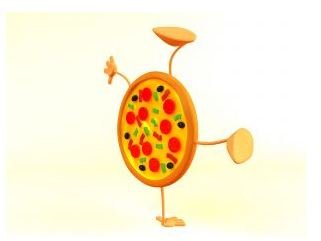Collection Of Kid Pleasing Preschool Snacks & Recipes
Cooking Experiments Enhance Learning Opportunities
Preschoolers love to cook, and more than that, preschoolers love to eat. Most preschool or day care buildings are equipped with a kitchen, which provides classes with daily snacks courtesy of the center cook, but it’s fun to give the cook a break at times.
Kids thoroughly enjoy getting into the middle of making snack creations so help students create their own personal or classroom snacks centered around classroom themes. Snacks and recipes are extremely versatile and are often worked into units covering different topics. Food can even be associated with teaching letters, numbers and math concepts.
As a preschool teacher, you can bring the fun, excitement and sense of accomplishment out of the kitchen and into the classroom with recipes created by preschoolers. The children will rejoice when they consume yummy treats made from scratch. Obtain the necessary materials from your center, preschool funds, or donations from parents to ease the cost on your personal wallet.
General & No-Cook Recipes
No-cook recipes are a terrific idea for the preschool classroom for safety reasons and for the classroom or center without access to cooking facilities. Preschoolers love to get their hands into every project, which includes recipes in the kitchen. Allow them time to explore ingredients and talk about each recipe for a terrific literacy activity.
Beginning a conversation in school about recipes and kitchen safety helps preschoolers continue the conversation at home. Be sure to help students understand why kitchen safety is important by talking about sharp knives and hot stoves. Explore and experiment with the following articles which include units, lesson plans, and recipes with a general cooking theme.
- Healthy Recipes Which Require No Cooking - Preschoolers Participate in These Healthy Snacks!
- Eat Dirt with This Wormy Treat!
- Teach Students What It Means to Be Healthy Through a Full Healthy Food Unit Including Snacks
- A Full Day of Cooking Activities for Preschoolers
- Use Cool Whip to Make Crafts, Snacks, and Edible Art with Preschoolers
- General Preschool Recipes Include Clown Bread, Necklaces and Other Edible Preschool Crafts
- Preschoolers Learn About Cooking, Measuring and Kitchen Safety During a Full Preschool Cooking Unit
- Teach Preschoolers About Honey and Honey Bees with a Honey Taste Testing Snack
Recipes with Themes Such as Seasons and Holidays
Themed recipes and snacks coordinate nicely with seasons, holidays or classroom activities. Many teachers look for ways to incorporate all five senses into themed activities and using food to enhance the lesson brings taste into the classroom.
Preschoolers can assist with at least the preparation portion of many of these recipes and snacks. Remember to allow them ample opportunity to get their hands into the creation process to incorporate the sense of touch. Many students will learn more through the tactile experience provided these themed recipes and snacks because it engages their individual learning style better.
- Celebrate Spring, April, Rebirth and the End of Winter with Fun April Recipes
- Christmas Recipes Fill the Preschool Classroom with the Warm Christmas Spirit
- Use This Apple Theme, Accompanied with an Apple Snack, to Celebrate Fall!
- While Teaching a Unit on the Doctor and Nurse, Make Hospital Gelatin to Help Kids Understand What Patients Eat
- Use These Snacks While Teaching a Community Based Unit on Firemen - Eat Like a Fireman!
- Another Spring Food Theme - Use These Extra Ideas for More Hands-On Food Activities
- These Fall Ideas Include a Tasting Party, Where Students Discover Their Favorite Seasonal Harvest Foods
- The Fourth Of July Brings Edible Crafts Into the Preschool Environment
- Simple Preschool Snacks for Christmas Help Bring the Kitchen Into the Classroom
- Got Fish? Use Them in This Fishy Animal-Based Preschool Snack Theme
- Leftover Halloween Candy Is Transformed With Preschool Helpers
Letter and Math Recipe Themes
Yes, it’s true: letters and math concept lessons are assisted by food. Feed the preschoolers their lessons with some activities that tingle the taste buds while demonstrating abstract concepts such as charting and dividing.
Pizza is easily divided and it is surprisingly easy to create in a center that has a stove. For those facilities without stoves, other activities help enhance the letter or math activities such as the apple charting plans or the W is for Watermelon ideas. Students love to talk about what they’re doing so remember to work literacy into the activities to capture every learning opportunity possible.
- Review the Letter D with Activities, Crafts, and Fun Dairy Snacks
- Teach Lesser or Greater Than Math with Activities and Cracker Snacks
- Make Waffles For the Letter W! Include Fun Toppings For a Hands-On Preschool Snack
- Slice It Up! Teach Math and Pre-Division Lessons with a Preschool Pizza Party
- Graph Those Apples: Present Preschoolers with Graphing Lessons Using The Fall Apple Harvest
Prepare, Create, Explore
These recipe and snack ideas are simply the beginning of bringing the kitchen to the preschool classroom. Use the ideas as they are written or redevelop each to fit your unique classroom environment. Double or triple recipes to cover a fuller classroom, or break up recipes into individual bowls so every child has a chance to create and contribute.
Plastic zip-top bags are useful to keep the classroom environment neat and germ-free. Each child will use their own personalized zip-top bag, with their name across the front, to mix ingredients. This ensures children will not trade bowls or mix up ingredients.
As usual, preparation before class is extremely helpful when teaching preschoolers, but attempt to leave as much of the preparation as possible for the students. This gives students a sense of ownership and pride to the project, which helps them internalize and remember the accompanying lesson.
References
- http://www.sxc.hu/photo/[1159089](http://www.sxc.hu/photo/1159089)
- Author’s own experience
